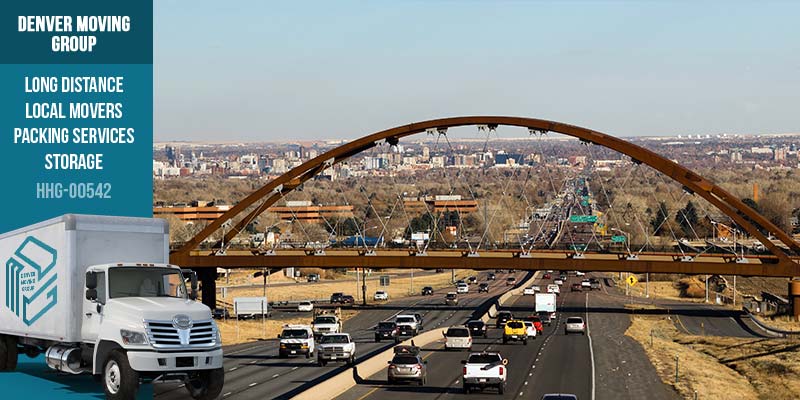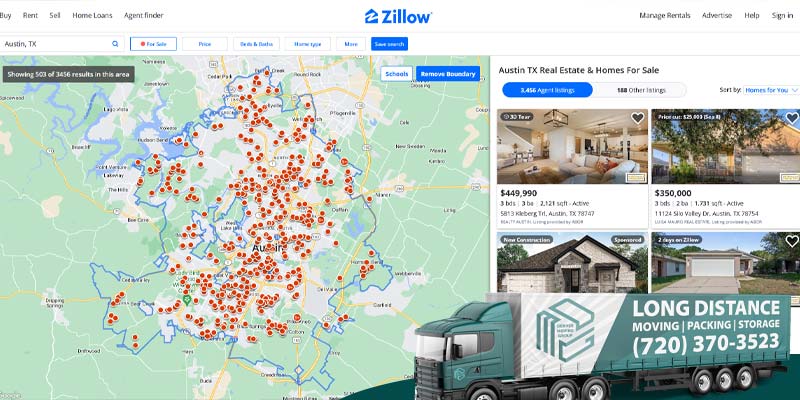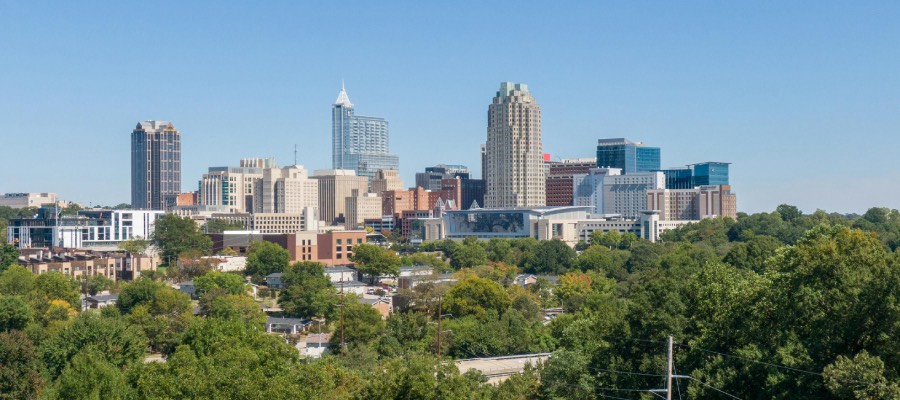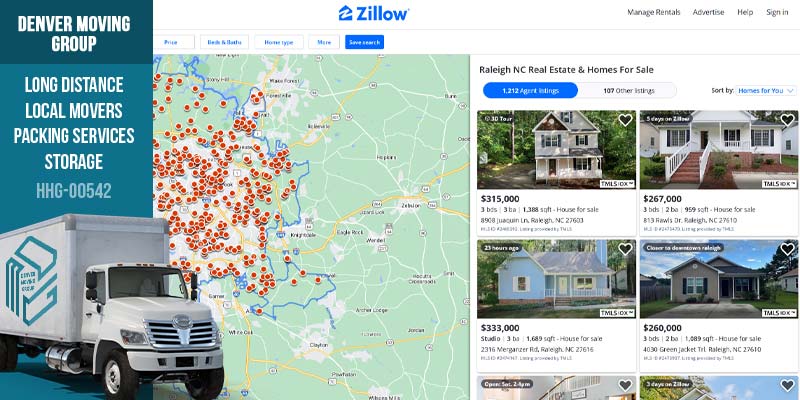You are planning a move with the assistance of a fantastic Denver moving company and have narrowed your options to three amazing cities: Denver, CO, Austin, TX, and Raleigh, NC. To make your final decision, it is essential to consider several factors, from the population to the housing market and the school system.
Here is a very simple, straightforward guide to help compare the ins and outs of living in Denver, Austin, and Raleigh.
Denver, Colorado
Originally founded as a small gold mining town in 1858, Denver, Colorado, is located at the foothills of the glorious Rocky Mountains. The well-known “Mile High City” got its name from the city’s unbelievable 5,280. Known for the Denver Broncos, several art and history museums, and a very environmentally conscious population, Denver might be the city for you.
Population
Spread across Adams County, Denver County, and Jefferson County, the population of Denver, was 738,594 in 2020. It is probably not hard to believe, but Denver is the 19th largest city in the United States. The population of Denver is growing at a rapid rate of 1.59% annually.
Denver is approximately 155 miles, and the city’s population density is about 4,818 people per square mile.

Climate
The temperatures in Denver, CO, vary drastically, with an average low of 22 degrees Fahrenheit in the winter and 89 degrees Fahrenheit in the summer. If you love skiing, snowshoeing, and making snow angels get ready to enjoy the nearly 60 inches of snow Denver receives each year, which is far higher than the national average snowfall rate of 28 inches per year.
The spring, summer, and fall temperatures typically remain consistent, and you can expect an average of 17 inches of rain every year, which is far below the national average.
Cost of Living
Denver is a diverse, beautiful city, and unfortunately, you will pay handsomely to enjoy the city’s many amenities. The average cost of living for a single person in Denver is $2384. That is over 14% higher than the national average. If you have a small family of four, the average cost of living is $5427. If you want to move to Denver, keep these numbers in mind because when you compare Denver to other comparable cities, Denver is a costly place to call home.

Safety
If you have family, the safety of any city you are moving to is a huge consideration. Unfortunately, Denver has a higher-than-average crime rate compared to other comparable cities, including Newark and Philadelphia. For example, in 2020, the reported rate of violent crimes was approximately 884 crimes per 100,000 residents. This number is 2.2 times greater than the average rate of violent crimes in the United States.
The rate of violent crimes in Denver over the past few years has risen by 15%. In 2020 alone, residents of Denver reported 4,344 robberies, 6,329 violent crimes, and 1,218 aggravated assaults. Property crime rates here are much higher than the national average in Denver, as well.
As with other large metropolitan areas, the rate of violent and non-violent crimes can vary drastically from neighborhood to neighborhood. If you are considering contacting a Denver moving company, do a little more research about the crime rates in your potential neighborhood or area of the city.
Job Market
If you are searching for a complete career swap or want to find a challenging new job in your current field, Denver is a great option. The average salary in Denver is $64,880. That is, unfortunately, higher than the national average of $56,310. Denver is constantly expanding, and there are several areas of specific job growth, including in the aerospace, energy, financial services, and healthcare industries.
Additionally, the unemployment rate in Denver is 8.4%, which is lower than the national average of 8.7%.
School System
There are 626 schools to choose from in Denver, with 251 public elementary schools, 140 public middle schools, and 100 public high schools. There are also 384 private schools to choose from in the greater Denver metropolitan area. Eighty-eight of the high schools in Denver have been recognized by U.S. News and World Report’s Best High Schools ranking list.
If you are hiring a Denver moving company to relocate your college student, you have several options to choose from in Denver, including Regis University, the University of Colorado Denver, and the University of Denver. For high schoolers and adults alike looking to break into Denver’s growing engineering and applied sciences fields, the Colorado School of Mines is in the top 90 best colleges and universities in America, according to the publication U.S. News and World Report.

Housing and Rental Markets
Like other large cities in the United States, Denver’s housing and rental markets are very competitive. The median sale price of homes in Denver is $585,000, and this number is growing. As a matter of fact, the cost of homes has risen 4.5% over the last few years. The average home in Denver will receive approximately four offers and remain on the market for only eight days.
The average monthly rent in Denver, Colorado, is $2,220, although rents vary widely depending on the number of bedrooms and the neighborhood. For example, if you want to live in the Barnum or Mar Lee areas of Denver, you will pay around $1,218 a month. Cherry Creek is a hot neighborhood in Denver, and you will pay a premium, $2,518 a month, to live there.
Austin, Texas
Known for its eclectic population and as the “Live Music Capital of the World,” Austin is the capital and fourth largest city in the great state of Texas. The citizens of Austin are proud of the city’s unusual music scene, world-class food trucks, and undeniably distinctive nightlife. If you want a mixture of a booming metropolitan hub and fantastic wildlife and natural beauty right outside the city limits, Austin is a great option.

Population
In 2020, the population of Austin, TX, was 996,147. The city is massive and is spread over 319.9 square miles. The 11th largest city in America, Austin, is growing at a steady rate of around 1.75% per year, and the population has increased a respectable 3.57% over the last ten years.
There is a broad mixture of people who call Austin home, from young college graduates looking to enjoy the nightlife to recent retirees who want to enjoy all the amenities that Austin has to offer, from museums and non-stop shopping to world-class restaurants.
Climate
If you are not a fan of colder temperatures, Austin is a great choice because the average low is only 43 degrees Fahrenheit, and the average high is around 97 degrees Fahrenheit, although it can reach highs over 100 degrees Fahrenheit. Unsurprisingly, the average snowfall in Austin is 0 inches per year, and the average rainfall is 35 inches per year, which is just slightly below the national average of 38 inches per year.
Cost of Living
The average cost of living for a single person living in Austin is $2,903 a month. If you are supporting a family of four, you can expect to pay around $5,309 monthly. These numbers are comparable to other cities of the same size and population as Austin and are 1% higher than the national average cost of living.
However, the cost of living in Austin is still in the top 50% of cities in the United States.
Before you discount Austin, it is also important to note that while the prices of certain goods and services in Austin are much higher than in other parts of Texas and the rest of the United States, the cost of utilities is 5% lower than the national average.

Safety
When compared to other large cities of roughly the same size and population, including St. Louis, Missouri, and Detroit, Michigan, Austin is a very safe place to live. The average rate of violent crimes in Austin is 414 incidents per 100,000 citizens, which is on par with the national average. The rate of property crime is only somewhat higher than the national average, with a rate of 3,189 incidents per 100,000 residents.
As with other major cities, some neighborhoods are safer than others, so you should consider looking into the Bear Creek, Hays, Spanish Oaks, and Belterra neighborhoods, as these are ranked as some of the safest communities in the city.
Job Market
The average yearly salary in Austin, TX, is $56,310, which is slightly lower than the national average annual salary of $57,830. The unemployment rate in Austin is an impressive 6.8%, which is nearly 2 percent lower than the national average. As with other major cities, specific industries are booming, including aerospace technology, insurance, data management, and creative media technologies.
The rate of job growth in the greater Austin area is expected to grow by 26% by 2030.

School System
There is a diverse mixture of public, private, and charter schools throughout Austin. The Texas Education Agency rated the Independent Austin School District a very respectable “B” in 2022. There are a total of 750 schools in the Austin area, and many of the elementary schools received very high ratings through Great Schools, including Laurel Mountain Elementary School and Canyon Creek Elementary School.
There are also several competitive high schools in Austin, including the top-rated Lasa High School and Westlake High School.

Housing and Rental Market
The median home selling price in Austin is $578,000, and homes stay on the market for approximately 41 days. This is much longer than other comparable cities, so this can give you a little wiggle room and allow you to weigh your options before you make an offer on a property. On average, you can expect to pay $1,826 each month on your rent.
However, as mentioned above, like in other urban areas, the rent can vary widely, depending upon the neighborhood and community. For example, if you want to enjoy the nightlife, shopping, theaters, and restaurants of downtown Austin, be prepared to spend around $3,378 a month on rent.
Austin has more affordable neighborhoods, including Georgian Acres, North Lamar, and Windsor Hills.

Raleigh, North Carolina
Founded in 1792 and named after famed explorer and personal friend of Queen Elizabeth I, Sir Walter Raleigh, Raleigh, North Carolina, is also known as the “City of Oaks” because of the vast amounts of towering oak trees that are found in the city. If you are pondering hiring a moving company in Denver, CO, and want to live in a city with a widely diverse population and well-known music and performing arts scene, Raleigh just might be the ideal city to plant some roots in.

Population
Found in Wake County and the capital of North Carolina, the population of Raleigh is 480,419 in 2022. The city of Raleigh is 145.9 square miles and is the second largest city in North Carolina, behind Charlotte. The city is growing at an average annual rate of about 1.35%, and the population density of Raleigh is 3,293 people per square mile.
Raleigh is often grouped in with nearby Durham and Chapel Hill to create the greater Raleigh-Durham-Chapel Hill Combined Statistical Area, which has a total population of 2.1 million inhabitants.
Climate
There is a wide range of average temperatures in Raleigh, with an average low of 33 degrees Fahrenheit and an average high of 89 degrees Fahrenheit. Raleigh only receives about 4 inches of snow annually, and the rainfall average, 46 inches per year, is slightly higher than the national rainfall average of 38 inches of rain annually.

Cost of Living
A single person considering moving to Raleigh, NC, can expect to spend around $2,427 each month for rent, food, utilities, and any other basic needs. A family of four will need to pay $4,308 for their basic needs, as well. When compared to other cities of comparable size, the cost of living in Raleigh is very affordable, and Raleigh is actually cheaper than nearly 74% of other cities in the United States.
If you want to get down to a few serious basics, you can expect to pay $2.21 for a two-pound bag of potatoes, $2.29 for a dozen eggs, and around $8 for a meal at most fast-food restaurants.
Safety
Anyone moving to a large city wants one fundamental question answered: Is that city safe? Raleigh is a relatively safe city with an overall crime rate of only 3% over the national average. The rate of violent crimes is 1% higher than the national average and the rate of property crimes, such as vandalism, theft, and arson, is around 3% higher than the national average.
If these numbers seem high, it is essential to realize that Raleigh is rated 72% safer than other cities in North Carolina and also 43% safer than other comparable cities in the United States.
For families that place safety at the top of their list when looking for a new home, there are several safe neighborhoods in Raleigh, including Brier Creek, Mordecai, and Five Points.
Job Market
In a word, the job market in Raleigh is “hot,” especially if you want to pursue a career in information technology, education, and research. The average annual salary in Raleigh is $56,310, which is only slightly lower than the national average yearly salary. The unemployment rate is 2% lower than the national average and sits at 6.7%.
Raleigh ranks just below Austin, TX, in technology job growth over the last ten years. Raleigh also ranks amongst the highest in job growth in the STEM (science, technology, engineering, and math) industry.
School System
The Raleigh school district is a part of the greater Wake County School District, and its grade schools, middle schools, and high schools rank as some of the best in the country. There are 472 schools in the city of Raleigh itself, including 131 elementary schools, 73 middle schools, and 54 high schools. Five of Raleigh’s high schools were awarded the prestigious “College Success Award,” including Raleigh Charter School, Wake Early Coll Heal, and Wake Young Men’s Leadership Academy.
There are several 2-year colleges and 4-year universities found in Raleigh, as well. Amongst them are Shaw University, Meredith College, and North Carolina State University, which boasts an impressive STEM department.
Housing and Rental Market
The housing market in Raleigh is very hot and very competitive. The average median sale price for a home in Raleigh, NC, is $410,000, and the average cost is expected to grow 12% each year. The average home stays on the market for 34 days. The average rent for a very modest apartment in Raleigh, NC, is $1,631. You can expect to pay $1,362 for a one-bedroom apartment and $1,558 for a two-bedroom in Raleigh.
Once again, as with any other major city, some neighborhoods are far more expensive than others. If you want a very affordable apartment, look for a place in the Amberfield, Avington Place, or Beachwood neighborhoods. The most costly communities in Raleigh include downtown Raleigh, Whitaker Park, and Wake Hills.

Final Verdict?
Now that you have all the hard numbers, it is time to decide which of the three cities – Denver, CO, Austin, TX, and Raleigh, NC – is the right option for you. All of these cities have excellent school systems, exceptional amenities, and impressive job markets. It can be a tough decision, so make sure to do a little more research on your own into the individual neighborhoods before you make a final decision and contact a reputable long-distance moving company in Denver, CO, to get a free moving estimate.

